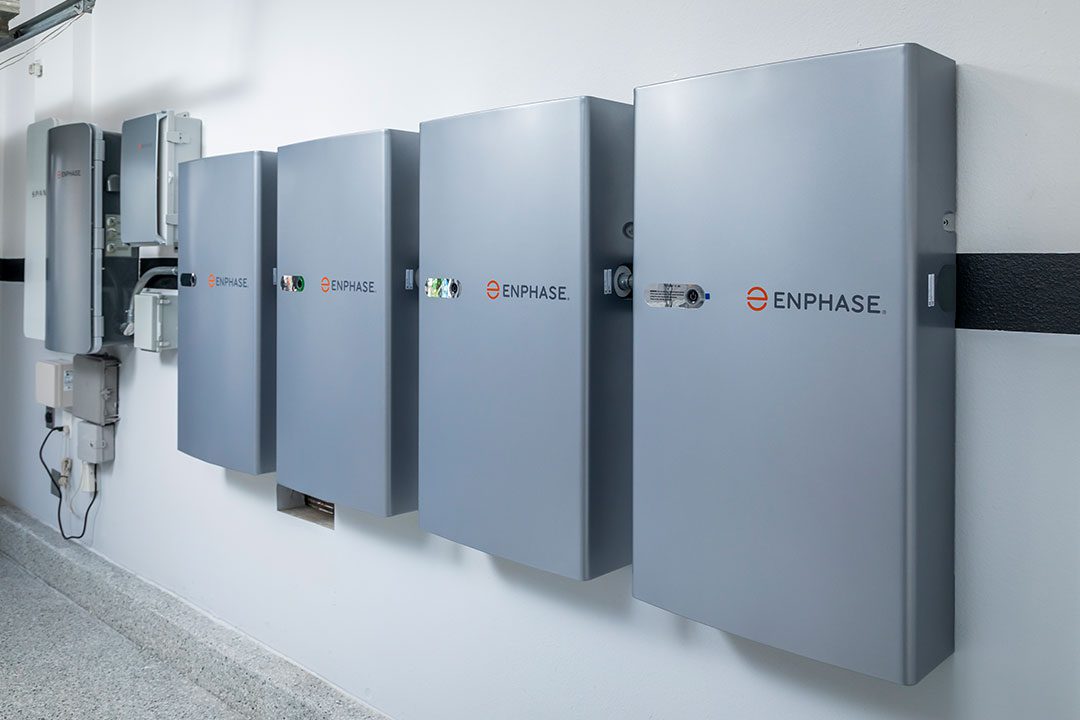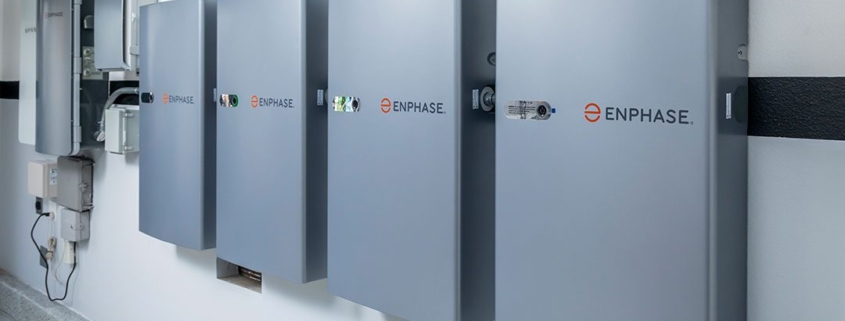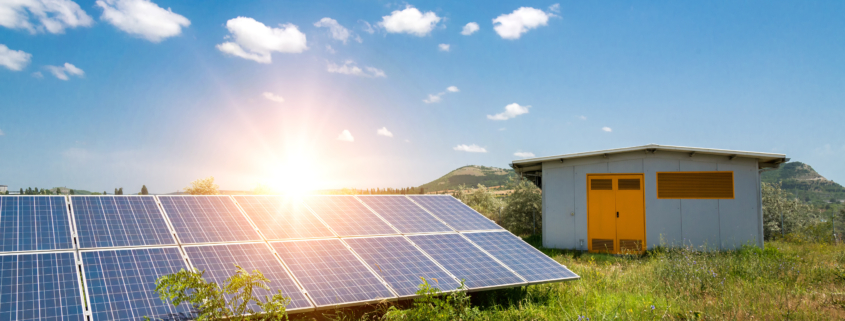
- Identifying and understanding how energy is consumed allows homeowners to target areas where energy waste occurs, leading to immediate savings.
- Regular maintenance of HVAC systems and upgrading to energy-efficient appliances can have a significant long-term impact on reducing energy consumption.
- Utilizing solar power and taking advantage of available incentives and rebates can not only decrease energy costs but also provide financial benefits and contribute to a more sustainable lifestyle.
Lowering energy bills goes beyond just cutting costs; it’s about adopting a more sustainable lifestyle. Implementing proven strategies to lower energy usage can help homeowners cut costs significantly while reducing their carbon footprint. Incorporating renewable energy sources, like solar panels, can further maximize these benefits.
Here are a few actionable tips to help homeowners lower their monthly expenses while optimizing energy efficiency in their homes.
Understanding Energy Consumption
Efficient energy management begins with understanding how energy is used in a home. Identifying the major contributors to energy consumption and finding areas where waste occurs is the first step toward implementing cost-effective solutions.
Key Contributors to High Energy Bills
Heating and cooling systems are often the largest energy consumers in a home. Running these systems inefficiently or without regular maintenance can lead to steep energy bills. Though essential, appliances like refrigerators, dishwashers, and washing machines also account for a significant portion of electricity usage. Lighting, water heating, and electronic devices may not seem like major contributors individually, but together they add to considerable energy waste.
Performing a Home Energy Audit
Conducting an energy audit is a practical way to identify inefficiencies. Homeowners can hire a professional auditor to evaluate the insulation, appliance performance, and energy habits in their homes.
Alternatively, DIY tools and apps are available to track consumption patterns. By pinpointing high-usage areas, homeowners can take corrective steps to improve efficiency and reduce waste.
Optimize Heating and Cooling Systems
Temperature regulation plays a crucial role in energy consumption, especially during extreme weather conditions. Implementing smart practices and maintaining equipment properly can lead to significant savings.
Regular Maintenance Tips
Heating, ventilation, and air conditioning (HVAC) systems require regular care to operate at peak efficiency. Cleaning or replacing filters every three months offers proper airflow and reduces the strain on the system. Scheduling annual professional inspections can help detect and fix potential issues before they escalate into costly problems.
Thermostat Management
Smart thermostats provide homeowners with advanced control over their indoor climate. Setting these devices to lower heating and cooling during hours when the home is unoccupied reduces unnecessary usage. Adjusting settings by just a few degrees can result in noticeable savings without compromising comfort.
Insulation and Sealing
Insufficient insulation allows heat to escape in winter and seep in during summer, forcing HVAC systems to work harder. Insulating walls, attics, and basements can drastically reduce energy waste. Sealing gaps around windows, doors, and air ducts further increases a home’s thermal efficiency, cutting heating and cooling costs significantly.
Upgrading to Energy-Efficient Appliances
Replacing outdated appliances with modern, energy-efficient models can lower energy bills substantially over time. Knowing what to look for and timing the upgrades properly is essential.
Understanding Energy Star Ratings
Energy star ratings provide reliable information on the energy efficiency of appliances. Products with this label have been tested and certified to use less energy, which translates to lower operational costs and a lesser environmental impact.
Top Appliance Upgrades for Savings
Investing in energy-efficient refrigerators, washing machines, and HVAC systems can yield long-term savings. These appliances use advanced technologies to operate with less electricity and water, helping reduce overall household energy consumption.
When to Replace vs. Repair
Deciding whether to repair or replace an appliance can be challenging. Here are key considerations to help make that decision:
- Age of the Appliance: If the appliance is over 10 years old, it might be more cost-effective in the long run to replace it rather than continuing to repair it.
- Frequency of Breakdowns: Frequent repairs may indicate that the appliance is near the end of its lifespan. In such cases, replacing it helps avoid ongoing repair expenses.
- Energy Efficiency: Older appliances often use more energy. Replacing them with newer, energy-efficient models can result in significant savings over time.
- Cost of Repair vs. Replacement: If the cost of repairs is more than half the price of a new appliance, replacement is usually the better option.
- Parts Availability: If parts are no longer available for an appliance, replacement is likely the best course of action.
- Performance Decline: If the appliance no longer functions properly or its performance is significantly reduced, investing in a new model may improve energy efficiency.
Reducing Phantom Energy Usage
Phantom energy, also known as standby power, is the energy consumed by electronics that remain plugged in even when not in use. This often-overlooked aspect contributes to unnecessarily high energy bills.
What Is Phantom Energy?
Devices like chargers, TVs, and game consoles consume electricity even when they’re in standby mode. Over time, this adds up to significant energy waste and higher costs.
How to Combat Phantom Load
Using smart power strips that cut power to devices when not in use is an effective way to minimize phantom energy usage. Additionally, unplugging devices such as phone chargers and small kitchen appliances when not actively used can reduce this drain further.
Sustainable Lighting Solutions
Lighting is a simple yet impactful area to target for energy savings. Replacing outdated fixtures and maximizing natural light can create substantial reductions in electricity consumption.
Switch to LED Bulbs
Compared to traditional incandescent or fluorescent bulbs, LEDs consume significantly less energy and last much longer. They provide the same level of brightness with minimal energy input, making them an ideal choice for reducing lighting costs.
Maximizing Natural Light
Positioning furniture and window coverings to maximize daylight can reduce the need for artificial lighting. Bright, open interiors minimize the use of lights during the day.
Smart Lighting Solutions
Motion-sensor and timer-based lighting systems add convenience while curbing excessive energy usage. Smart systems enable homeowners to program lights to turn off when rooms are unoccupied so that energy isn’t wasted.
Efficient Water Heating Practices
Heating water accounts for a considerable portion of a household’s energy usage. Adopting strategies to heat water efficiently can make a noticeable difference in monthly bills.
Lower Water Heater Temperatures
Most water heaters are set to a default temperature that exceeds daily needs. Lowering the thermostat to a safe but efficient level reduces energy consumption without affecting everyday activities.
Install Low-Flow Fixtures
Low-flow showerheads and faucets reduce water usage while maintaining good pressure. Less hot water used means less energy is needed to heat it.
Consider a Tankless Water Heater
These systems provide hot water on demand, eliminating the need to keep a reservoir heated continuously. These systems offer substantial long-term energy savings for households with moderate to high water usage.
Adopting Smart Energy Habits
Lifestyle adjustments can complement other energy-saving measures, helping homeowners maintain lower energy costs year-round.
Daily Lifestyle Changes
Simple habits, like turning off lights and electronics when leaving a room, help prevent energy waste. Running dishwashers and laundry machines only when full ensures efficient use of water and electricity.
Seasonal Adjustments
Adapting home settings and routines to seasonal needs can optimize energy usage. Using thicker curtains in winter to trap heat and lighter fabrics in summer to reflect sunlight helps maintain a comfortable indoor climate without overburdening HVAC systems.
Monitoring Energy Use
Tracking energy consumption through apps or utility provider tools keeps homeowners informed about their usage patterns. This awareness builds better decision-making and encourages efforts to save.
How Solar Energy Helps

Switching to solar energy is more than just an environmentally friendly choice; it’s a practical way to save money and reduce dependency on traditional energy sources.
Benefits of Using Solar Energy
Harnessing the power of the sun allows homeowners to take control of their energy usage while contributing to a sustainable future. Here are a few benefits of using solar energy:
Significant Reduction in Energy Bills
Solar panels convert sunlight into electricity, reducing reliance on grid power. This can lead to substantial savings, especially in areas with high electricity rates. Over time, the investment in solar panels pays for itself as homeowners enjoy lower utility bills.
Increased Property Value
Homes equipped with solar panels are more attractive to potential buyers. Many view solar energy systems as an asset due to the energy savings they provide. Studies show that properties with solar installations tend to sell faster and at higher prices compared to those without.
Renewable and Sustainable Energy Source
Solar energy is inexhaustible as long as the sun shines. Unlike fossil fuels, it doesn’t deplete finite resources or contribute to harmful emissions. By choosing solar, homeowners participate in reducing carbon footprints and building a greener planet.
Energy Independence
Generating electricity at home reduces reliance on power companies and protects against fluctuating energy prices. In regions prone to power outages, solar panels paired with battery storage systems provide a reliable backup source, ensuring energy availability when it’s needed most.
Financial Incentives and Tax Benefits
Governments and local municipalities often encourage solar adoption through tax credits, rebates, and other financial incentives. These programs can significantly lower the initial cost of installation, making solar more accessible to a wider audience. Additionally, homeowners may benefit from net metering programs, earning credits or money by selling excess energy back to the grid.
Low Maintenance and Long Lifespan
Solar panels require minimal maintenance to function effectively. Regular cleaning and occasional inspections keep systems running efficiently for decades. Most manufacturers provide warranties of 20 years or more for long-term reliability and performance.
Positive Environmental Impact
Adopting solar energy reduces greenhouse gas emissions, air pollutants, and the overall environmental impact of energy production. It supports global efforts to combat climate change and ensures cleaner air for future generations. Each household that switches to solar makes a tangible difference in promoting sustainability.
Maintaining Solar Panels
Proper maintenance is essential for maximizing the efficiency and lifespan of solar panels. Here are some ways to make sure the system is working at its best, leading to greater energy savings.
Regular Cleaning
Dust, dirt, and debris can accumulate on solar panels over time, reducing their ability to capture sunlight efficiently. Cleaning the solar panels every 6-12 months can help maintain optimal performance. Always use a soft cloth or a brush to avoid damaging the panels, and be cautious with harsh cleaning products.
Inspect for Damage
After heavy storms or extreme weather conditions, it’s a good idea to inspect solar panels for any visible damage. Look for cracked panels, loose wiring, or any other signs that might indicate problems. If there is any damage, it’s important to have it repaired promptly to prevent further issues.
Trim Nearby Trees
Overhanging branches or leaves can block sunlight from reaching the panels. Trim trees or bushes that may cast shadows on the solar array, giving maximum exposure to sunlight throughout the day.
Monitor System Performance
Many modern solar panel systems come with monitoring tools that allow homeowners to track their performance remotely. Regularly check the system’s output to make sure it’s working properly. A noticeable decrease in energy generation may signal an underlying issue.
Schedule Professional Inspections
While basic maintenance can be done by homeowners, it’s also recommended to schedule a professional inspection once a year. Experts will check whether the panels, wiring, and inverter are functioning correctly and identify any potential issues early.
For homeowners looking to reduce energy bills and increase savings, solar power offers a powerful, sustainable solution. At Coastal Solar, we provide expert solar installation and repair services so that you get the most out of your investment. Contact us today to learn how we can help you harness solar energy effectively and reduce your energy expenses.











